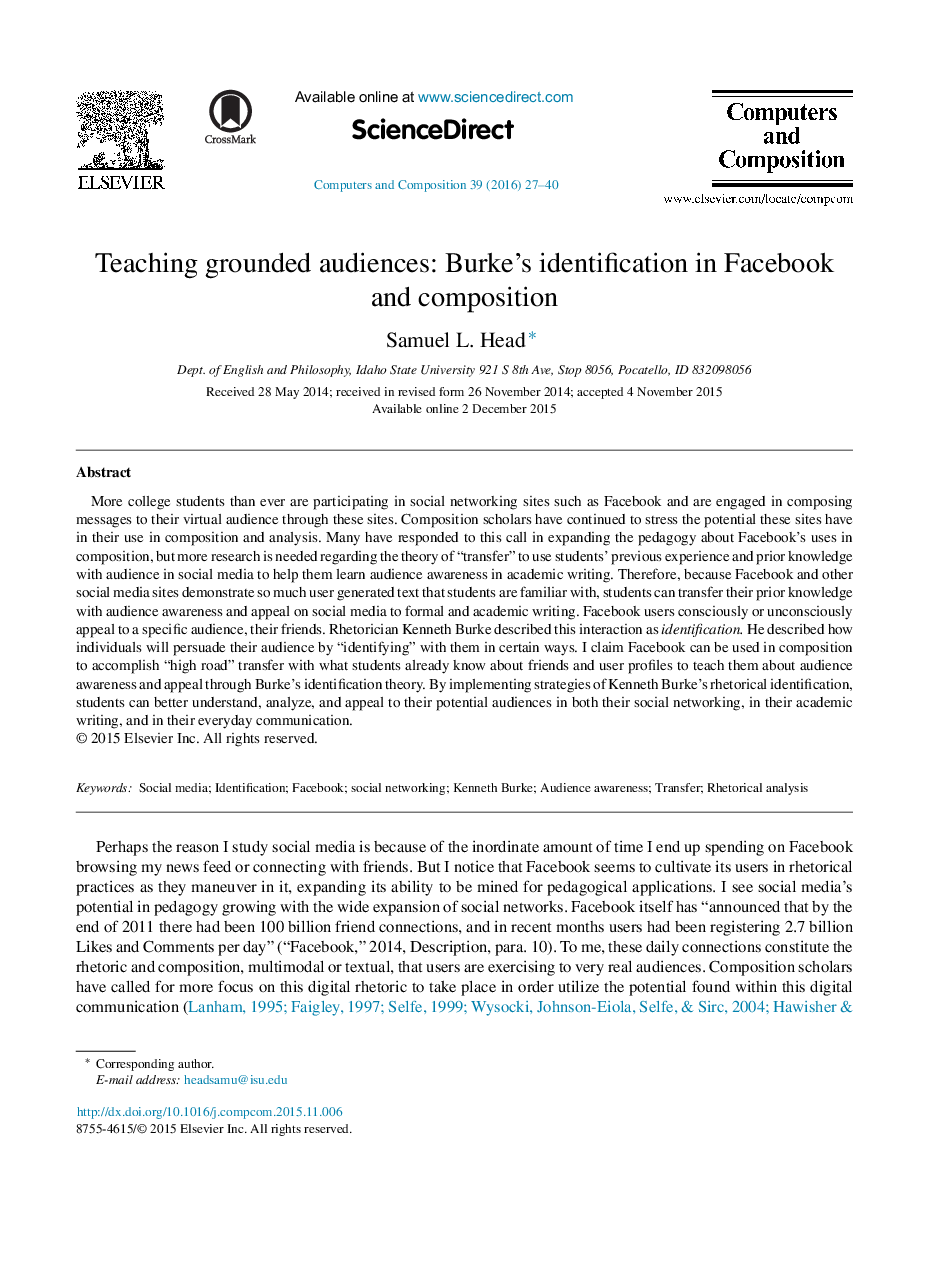| Article ID | Journal | Published Year | Pages | File Type |
|---|---|---|---|---|
| 347681 | Computers and Composition | 2016 | 14 Pages |
More college students than ever are participating in social networking sites such as Facebook and are engaged in composing messages to their virtual audience through these sites. Composition scholars have continued to stress the potential these sites have in their use in composition and analysis. Many have responded to this call in expanding the pedagogy about Facebook's uses in composition, but more research is needed regarding the theory of “transfer” to use students’ previous experience and prior knowledge with audience in social media to help them learn audience awareness in academic writing. Therefore, because Facebook and other social media sites demonstrate so much user generated text that students are familiar with, students can transfer their prior knowledge with audience awareness and appeal on social media to formal and academic writing. Facebook users consciously or unconsciously appeal to a specific audience, their friends. Rhetorician Kenneth Burke described this interaction as identification. He described how individuals will persuade their audience by “identifying” with them in certain ways. I claim Facebook can be used in composition to accomplish “high road” transfer with what students already know about friends and user profiles to teach them about audience awareness and appeal through Burke's identification theory. By implementing strategies of Kenneth Burke's rhetorical identification, students can better understand, analyze, and appeal to their potential audiences in both their social networking, in their academic writing, and in their everyday communication.
